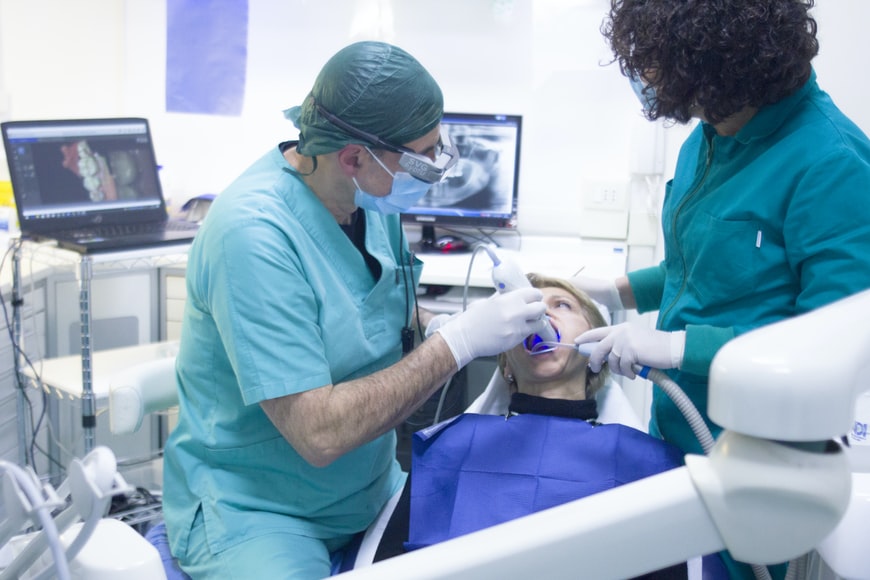5 Tips for Wisdom Teeth Removal | Before & After

Some people experience pain when their wisdom teeth grow. These teeth may become infected and affect the adjacent teeth. Additionally, wisdom teeth may lead to sinus issues, jaw damage or teeth crowding. For this reason, you may need to extract them. However, the thought of undergoing wisdom teeth extraction can be terrifying. Here are five tips on before and after wisdom teeth removal care to help you recover quickly.
Before you undergo wisdom teeth removal, you need to prepare adequately. Here are five tips to help you.
5 Tips for Before Wisdom Teeth Removal
1. Take Time Off Work or School
After wisdom tooth extraction, the best way to recover is to have allocated rest time away from work or school. Try and organise some time off in advance. Therefore, before you go for the procedure, ensure you inform the relevant authorities and ask them to allow you to stay at home for a few days. Avoid strenuous activities and sleep for at least seven to nine hours during this period.
Resting after a tooth extraction procedure helps to reduce bleeding. It can also help reduce swelling in the affected region, speeding up the recovery process.
2. Get Medication
The dentist will use some local anesthetic to make sure you don’t feel any pain during wisdom tooth extraction. When the anaesthetic wears off, you may start experiencing pain. To reduce the pain, you need to take pain-relieving medication.
Therefore, if your dentist recommends painkillers, ensure you start taking them before the anaesthetic wears off so that the pain doesn’t have a chance to come up. Pain relief medication works much better if you take them before the pain starts. Depending on what your dentist recommends, you may need to take pain medication every 6-8 hours. Set an alarm so that the medication is taken on course.
3. Buy Soft Foods
After tooth extraction, your mouth will feel sore for some time. When you are in such a condition, you should avoid eating hard foods since they may make the affected region swell, causing more complications. These foods may also slow down the healing process.
To avoid these issues, ensure you stock soft foods like eggs, rice, fish, fruit smoothies, and yoghurt in your house before the procedure.
4. Prepare Entertainment Options
Since you’ll need to take some time off work or school, ensure you look for activities to keep you busy and entertained during this period. You can look for your favourite movies, books, video games and crossword puzzles.
You can also use this time to do some of your hobbies, as long as they are not strenuous.
5. Familiarize Yourself with the Procedure
Wisdom teeth extraction procedures vary from one person to another. Therefore, your dentist may have different instructions or recommendations for you.
Before the procedure, ensure you ask about the medication you should avoid and the number of teeth to be removed.
5 Tips for Wisdom Tooth Removal Aftercare
After the wisdom teeth removal, you may experience some discomfort, and you need to take good care of the affected region to avoid complications. Here are some of the issues to expect and the aftercare tips.
1. Dry Socket
A dry socket is an issue that occurs when the blood clot in the extraction socket dissolves prematurely, exposing the underlying nerve endings and bones. As a result, you may experience pain, fever, bad breath or an unpleasant taste.
To avoid this issue, ensure you drink a lot of water during the first few days after the extraction and avoid smoking or drinking alcohol.
2. Bleeding
After the surgery, you may bleed a little. However, sometimes you may experience excessive bleeding, and you may stop it by placing a gauze pad on the affected region and biting it down for around 30 minutes. If the bleeding persists, bite on a moistened tea bag for some minutes. Teabags contain acid that aids in blood clotting by constricting the blood vessels surrounding the affected region.
3. Pain
When the sedative used during the procedure wears off, you will experience pain. For some people, the pain is manageable, while others may need to take painkillers for the pain to reduce.
After taking pain-relieving medicine, avoid driving or operating heavy machinery since some drugs make you feel drowsy or sleepy. If the pain persists after taking painkillers, you may need to see your doctor for further examination.
4. Swelling and Discoloration
Wisdom teeth extraction is an invasive procedure. Therefore, you may experience swelling around your eyes, cheeks, lips and face. You may also experience discolouration on the affected region due to bruising. To reduce these effects, get an ice pack and firmly press it on the affected regions.
5. Diet
After wisdom tooth extraction, you need to take a balanced diet to fasten the healing process and reduce the risk of complications. Since you are not supposed to take hard foods, buy nutrient-packed foods. Also, ensure you take easy-to-chew foods like mashed potatoes and vegetables.
Final Words
Recovering from a wisdom tooth extraction surgery is quite easy if you follow your doctor’s guidelines on before and after wisdom teeth removal care. At Whitehorse Dental, we have performed thousands of wisdom teeth removal procedures, and we know how to best care for you following the treatment. If you have any concerns about wisdom teeth extraction, aftercare tips, or unusual symptoms after extraction, contact us today.



